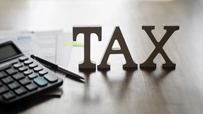A Deep Dive into the Documentation Required to Open a Recurring Deposit
Disclaimer: The information mentioned herein is for generic purposes only. Please contact Ujjivan Small Finance Bank for more details.
July 13, 2025

Saving money is an essential practice to secure your financial future. While there are various investment options available, Recurring Deposits (RDs) are a popular choice, especially for individuals who prefer safe and low-risk options. RDs not only help inculcate the habit of regular saving but also provide an opportunity to earn interest on your savings.
In this article, we will take a deep dive into the documents required to open an RD account, as well as the KYC process involved.
Recurring Deposit Documents Required
Before getting into the documentation requirements of recurring deposits, let's first understand what recurring deposits (RDs) are. Recurring deposits are a type of deposit where you make regular monthly or periodic deposits over a specific period of time. These deposits earn interest at a predetermined rate, which is added to the principal amount. At maturity, you receive the accumulated amount, which includes both the principal and interest earned.
To open an RD account, you need to have a Savings Account first. The Savings Account is then linked to your RD. Every month, on the RD payment date, the amount (as selected by you) gets debited from your Savings Account.
Now, let’s look into the documents required to open a Recurring Deposit. If you are planning to open an RD with the same bank where you have a Savings Account, you won’t have to provide any additional KYC documents. For example, if you have a Savings Account with Ujjivan, you can open an RD with Ujjivan just by linking your Savings Account.
In case, you’re planning to open an RD with a different bank, here’s what you may need to provide.
- Proof of Address: You may need to provide valid address proof documents such as Aadhaar card, passport, utility bills (electricity bill, telephone bill), or bank statements with your current address mentioned.
- Proof of Identity: You must submit identity proof documents such as Aadhaar card, PAN card, voter ID card, or driving license.
- Income Tax Document: It is mandatory to provide your PAN card for opening an RD account. This is required for tax purposes and to comply with the Know Your Customer (KYC) norms.
Benefits of RDs
- Consistent Saving: RDs encourage disciplined saving as you need to contribute a fixed amount every month. This encourages a savings habit and ensures that you set aside a certain amount of money regularly.
- Fixed Returns: Unlike other investment options that are market-linked, RDs offer fixed returns. The interest rate is predetermined at the time of opening the account, providing stability and predictability in terms of returns.
- Flexibility: RDs offer flexibility in terms of deposit amounts and tenure. You can choose the monthly deposit amount based on your financial capacity, as well as select a tenure that aligns with your financial goals.
- Low Risk: RDs are considered low-risk investments as they are backed by banks. Your principal amount is secure, and the interest earned is guaranteed.
Recurring Deposit Documentation Checklist
Table: Documentation Checklist
| Document | Acceptable Proofs |
| Address Proof | Aadhaar card, passport, utility bills (electricity bill, telephone bill), bank statements |
| Identity Proof | Aadhaar card, PAN card, voter ID card, driving license |
| PAN Card | Mandatory for tax purposes and KYC compliance |
Tips for a Smooth RD Account Opening Process
- Keep your documents handy: Ensure that you have all the necessary documents in order before visiting the bank or applying online.
- Complete KYC formalities: Fill out the KYC form accurately and provide any additional information requested by the bank.
- Maintain sufficient funds: Make sure you have the required funds to make the initial deposit when opening an RD account.
Final Thoughts
Opening a recurring deposit account is a smart choice for regular saving and earning interest on your savings. By understanding the recurring deposit documentation requirements and following the KYC process, you can easily open an RD account with confidence.
Start small, dream big! Invest in Ujjivan Small Finance Bank’s Recurring Deposit and enjoy higher interest rates! Save for your long- and short-term goals with our RD and live a stress-free financial life. Start investing with just ₹100!
Disclaimer:
The contents herein are only for informational purposes and generic in nature. The content does not amount to an offer, invitation or solicitation of any kind to buy or sell, and are not intended to create any legal rights or obligations. This information is subject to updation, completion, amendment and verification without notice. The contents herein are also subject to other product-specific terms and conditions, as well as any applicable third-party terms and conditions, for which Ujjivan Small Finance Bank assumes no responsibility or liability.
Nothing contained herein is intended to constitute financial, investment, legal, tax, or any other professional advice or opinion. Please obtain professional advice before making investment or any other decisions. Any investment decisions that may be made by the you shall be at your own sole discretion, independent analysis and evaluation of the risks involved. The use of any information set out in this document is entirely at the user’s own risk. Ujjivan Small Finance Bank Limited makes no representation or warranty, express or implied, as to the accuracy and completeness for any information herein. The Bank disclaims any and all liability for any loss or damage (direct, indirect, consequential, or otherwise) incurred by you due to use of or due to investment, product application decisions made by you on the basis of the contents herein. While the information is prepared in good faith from sources deemed reliable (including public sources), the Bank disclaims any liability with respect to accuracy of information or any error or omission or any loss or damage incurred by anyone in reliance on the contents herein, in any manner whatsoever.
To know more about Ujjivan Small Finance Bank Products Visit:"https://www.ujjivansfb.in"
All intellectual property rights, including copyrights, trademarks, and other proprietary rights, pertaining to the content and materials displayed herein, belong
to Ujjivan Small Finance Bank Limited or its licensors. Unauthorised use or misuse of any intellectual property, or other content displayed herein is strictly prohibited and the same is not intended for distribution to, or use by, any person in any jurisdiction where such distribution or use would (by reason of that person’s nationality, residence or otherwise) be contrary to law or registration or would subject Ujjivan Small Finance Bank Limited or its affiliates to any licensing or registration requirements.
FAQs
1. Can I open an RD account online?
Yes, many banks offer the facility to open an RD account online. Check with your preferred bank for their online account opening process.
2. What is the minimum deposit amount for an RD?
The minimum deposit amount varies from bank to bank. It can be as low as ₹100.
3. Can I withdraw money from my RD before maturity?
Generally, banks do not allow premature withdrawal of funds from an RD account. However, some banks may allow it with certain terms and conditions.
4. Can I avail a loan against my RD?
Yes, some banks offer the facility to avail a loan against your RD. The loan amount is usually a percentage of the RD balance.
5. Is the interest earned on RDs taxable?
Yes, the interest earned on RDs is taxable as per your income tax slab.
6. Can I add more funds to my existing RD account?
No, recurring deposits have fixed monthly deposit amounts. To add more funds, you would need to open a new RD account.
7. Can I open multiple RD accounts?
Yes, you can open multiple RD accounts with different banks or with the same bank.
8. Can I change the monthly deposit amount for my RD?
Generally, banks do not allow you to change the monthly deposit amount once the account is opened. However, some banks may provide flexibility in this regard.
9. What happens if I miss a monthly deposit in my RD?
Missing a monthly deposit may attract penalties or affect the interest rate for that particular month. Check with your bank for their specific policy.
10. Can I nominate someone for my RD account?
Yes, you can nominate someone for your RD account in case of any unfortunate event.
Latest Blogs

Overconfidence Bias and Its Cost in Investing
June 24, 2025
Overconfidence is a well-documented behavioural bias in finance – often described as an “illusion of control” where investors overestimate their ability to predict or influence market outcomes.

What Makes a Savings Account Ideal for First Time Earners?
July 10, 2025
Starting your first job or gig is an exciting milestone. With your first earnings or salary in hand, one of the biggest questions is: "Where should I keep my money?"

How to Avoid Ineligible Deduction Claims While Filing ITR
July 09, 2025
Filing your Income Tax Return (ITR) for the financial year 2024-25 (Assessment Year 2025-26) requires careful attention to detail.

ITR-1 vs ITR-2: Understanding the Difference and Choosing the Right Tax Form
June 24, 2025
Filing your income tax return in India requires using the correct ITR form.

How Jewellers in India Calculate Gold Price
June 26, 2025
Gold jewellery holds a special place in Indian culture, often bought during festivals and family celebrations.





